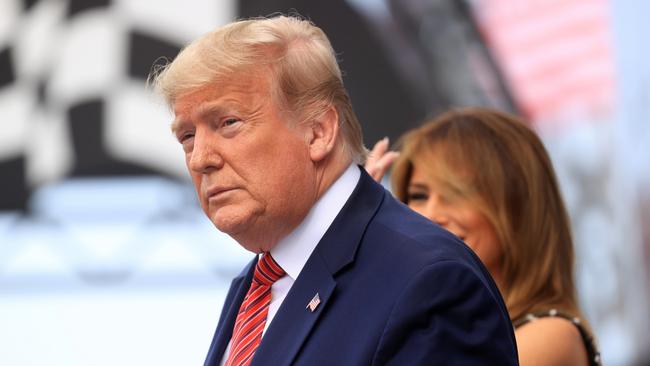Failure to convict Trump over Capitol riot does not mean it was a mistake to try

Did the failure to convict Trump mean it was a mistake to try? Hardly. The trial served various ends. It was a first attempt — and other legal efforts will follow, at least for lesser figures, in criminal courts — to assign responsibility for the deadly attack on the US Capitol. The Senate trial drew avid public attention. Dramatic fresh footage of the assault by the mob, presented last week by Democrat congressmen serving as the prosecution, was witnessed by millions of Americans following events online and on television. Those videos, often shot by the rioters themselves, were at times harrowing and cruel. The presentation was effective, and a reminder that political violence is a real threat in America. Even Trump’s lawyers frankly condemned the assault on the Capitol as “horrific” and said it was conducted by criminals. Whatever the result, the trial may thus have gone some way to helping to draw a line against anti-democratic violence — as low a bar as that might seem.
Second, the trial produced a political outcome of note. It has made explicit that the party remains in the grip of Trump, but that that grip has begun to weaken. That seven senators turned against a still popular former president from their own party is striking. It was a different story last year, when Trump was impeached for abuse of office after he put pressure on Ukraine’s government to investigate his main political opponent, Joe Biden, now president. On that occasion, Mitt Romney was the only Republican senator ready to vote to convict him. (That, in turn, was the first time any senator had voted against a president from his own party in an impeachment trial). This time, Romney was joined by six others who declared Trump’s behaviour beyond the pale: Richard Burr (North Carolina), Bill Cassidy (Louisiana), Susan Collins (Maine), Lisa Murkowski (Alaska), Ben Sasse (Nebraska) and Pat Toomey (Pennsylvania). To the number of senior Republicans turning their backs on Trump may be added Nikki Haley, a former ambassador to the UN, who in an interview with Politico said she was “disgusted” by his treatment of his vice-president, Mike Pence, and that she did not think he was going to be “in the picture”.
A larger share of Senate Republicans (14 per cent) thus voted against the ex-president than did Republicans in the House of Representatives, where 10 of them, out of 211, had backed his impeachment. The tally in the Senate may well have been higher still had Mitch McConnell, the minority leader, not wavered and then told his fellow senators that he would not vote to convict Trump.
The prosecution of Trump in the Senate made sense for a third reason. Not trying him for “high crimes and misdemeanours”, would have been to overlook egregious misbehaviour. As the Democrat House managers — the prosecutors of the case — spelled out clearly, Trump had spent months even before election day pushing a dangerous lie that the presidential election was rigged. He had welcomed support from conspiracy theorists, including QAnon, and violent far-right groups, such as the Proud Boys and the Oath Keepers, in spreading that lie. He had thus weakened trust in institutions, including the election authorities. He had urged supporters to descend on Washington on January 6 for a “wild” event. And his fiery speeches, including just before the attack on the Capitol, had excited the rioters whose violence resulted in the death of at least five people. If congress had not impeached him for all that, in an attempt to block him from seeking federal office again, it is hard to imagine what behaviour could ever warrant such prosecution.
Despite the acquittal, Trump’s future remains uncertain. In a statement after the verdict he hinted at lingering political ambitions. He feeds off public attention, the more so now that his eviction from social-media platforms has deprived him of one of his main attention-seeking devices. Yet Biden and the Democrats want to move their own attention to other things — notably fighting against the coronavirus pandemic. Options remain, such as censuring Trump in the Senate or trying to use the 14th Amendment to the constitution to block him from running for office. But any such action, requiring only a simple majority to support it in the Senate, would probably be seen as too narrowly partisan and at risk of setting a dangerous precedent. Instead it would probably be better politics to leave it to the Republicans, and perhaps the courts, to wrangle over the fate of the ex-president. That scrap could be bitter — and has only just begun.



Few expected that Donald Trump’s impeachment for inciting the mob that stormed the Capitol on January 6 would lead to his conviction. That would have needed the unlikely votes of 17 Republican senators. In recent weeks there were no signs that so many were ready to turn on the former president. Now those expectations have been met.